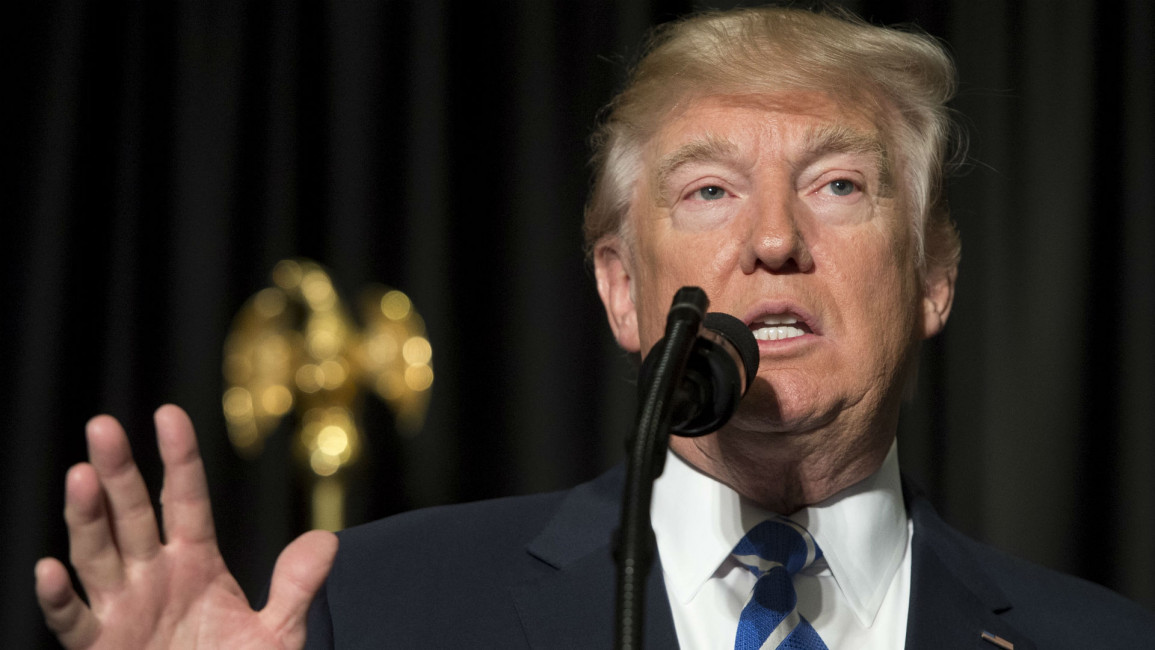Trump blasts 'political' courts over judges' immigration ruling
President Donald Trump slammed US courts as "so political" on Wednesday as judges consider an executive order barring US entry to refugees and nationals from seven mainly Muslim countries.
"I think our security is at risk today," Trump told a meeting of sheriffs from around the nation, as he defended his executive order, which was blocked nationwide by the federal courts a week after it went into effect.
Trump's executive order barred entry to all refugees for 120 days, and Syrian refugees are blocked indefinitely. Travelers from Iran, Iraq, Libya, Somalia, Sudan, Syria and Yemen are barred from entry for 90 days.
"I don't ever want to call a court biased, so I won't call it biased and we haven't had a decision yet," Trump said.
"But courts seem to be so political, and it would be so great for our justice system if they would be able to read a statement and do what's right."
The Republican president, now in his third week in office, said even "a bad high school student" would think he was right about his reading of the law - which he read out loud - with comments interspersed.
"If these judges wanted to, in my opinion, help the court in terms of respect for the court, they'd do what they should be doing. It's so sad," said Trump, who noted he had listened to the hour-long appeals court hearing on Tuesday.
The ninth circuit court of appeals is expected to rule by week's end on whether or not to reinstate the travel ban, which created chaos at airports both in the US and abroad, and prompted large protests.
The measure was suspended last Friday in a lower federal court, re-opening US borders to the thousands of refugees and travelers who had been suddenly barred from the country.
The justice department has argued that the federal court in Seattle overstepped by suspending the measure, and that national security is at stake - a position hammered home by Trump.
But the three-judge appeals court panel often appeared skeptical during Tuesday's hearing, with Judge Richard Clifton at one point calling the government's argument "pretty abstract".
The White House insists the decree is in the interest of national security, giving the new administration time to beef up vetting procedures to keep potential "terrorists" out of the country.
Its detractors claim it violates the constitution by discriminating against people on the basis of their religion.



